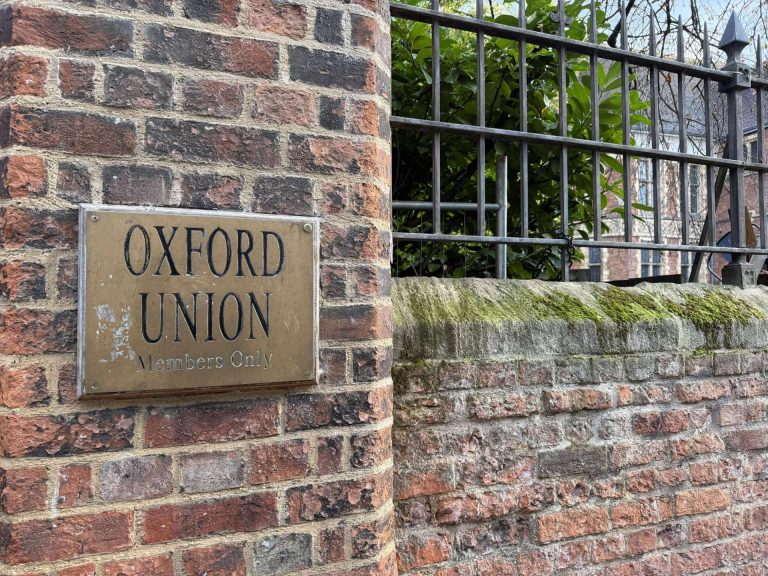Liraglutide, a synthetic analogue of glucagon-like peptide-1 (GLP-1), represents a prominent subject in peptide research due to its diverse physiological and biochemical properties. Originally designed as a long-acting GLP-1 receptor agonist, Liraglutide is believed to extend its support beyond classical glycemic regulation, offering valuable insights for various scientific research domains.
This article examines the molecular characteristics, mechanistic pathways, and potential implications of Liraglutide within experimental and translational research, with a focus on elucidating its multifaceted supports for metabolic, neurological, cardiovascular, and cellular functions in various murine research models.
Introduction to Liraglutide and Its Molecular Framework
Liraglutide is a 31-amino acid peptide analogue closely related to endogenous GLP-1 but engineered for better-supported pharmacokinetic properties through acylation with a fatty acid chain. This structural modification facilitates prolonged interaction with albumin, slowing enzymatic degradation and thereby extending the peptide’s activity period.
Studies suggest that the peptide may activate the GLP-1 receptor (GLP-1R), a G protein-coupled receptor distributed in multiple tissues, including the pancreas, central nervous system, cardiovascular system, and gastrointestinal tract. Research suggests that Liraglutide may induce receptor-mediated signaling cascades involving cyclic adenosine monophosphate (cAMP) and protein kinase A (PKA), ultimately supporting transcriptional and enzymatic activities that regulate glucose metabolism, hunger hormone modulation, and cellular survival pathways.
Metabolic and Endocrine Research Implications
The metabolic support for Liraglutide is perhaps its most investigated property, particularly its potential to modulate insulin secretion and glucose homeostasis. Activation of GLP-1R by Liraglutide may promote glucose-dependent insulinotropic responses, stimulating insulin release while concurrently suppressing glucagon secretion. These interactions might improve glycemic control mechanisms in research models designed to explore metabolic regulation.
Additionally, Liraglutide’s potential support for gastric emptying and nutrient absorption may support postprandial glucose kinetics, providing an experimental tool to dissect gastrointestinal hormone interactions. Research also suggests that Liraglutide may modulate hunger hormone regulation through hypothalamic centers, affecting neuropeptides involved in hunger and satiety signaling.
Neurological and Cognitive Dimensions
Beyond its metabolic actions, Liraglutide has generated interest for its potential neuroprotective and neuromodulatory properties. GLP-1 receptors are expressed in regions of the central nervous system associated with cognitive processing, learning, and memory, such as the hippocampus and cerebral cortex.
Investigations suggest that Liraglutide may promote neuronal survival and neurogenesis by activating intracellular pathways that involve cAMP response element-binding protein (CREB) and brain-derived neurotrophic factor (BDNF). These pathways may contribute to better-supported synaptic plasticity and cognitive function.
Moreover, research models have suggested that Liraglutide may exert anti-inflammatory support within the central nervous system, possibly through the modulation of microglial activation and a reduction in pro-inflammatory cytokine production. Such properties suggest that Liraglutide may be a candidate molecule for studying neurodegenerative diseases and the mechanisms of neuroinflammation.
Cardiovascular and Vascular Research Potential
GLP-1 receptors are also expressed in cardiovascular tissues, suggesting that Liraglutide may play a role in cardiovascular regulation. Studies suggest that the peptide may induce vasodilation by promoting the production of nitric oxide (NO) through the activation of endothelial nitric oxide synthase (eNOS). This vascular action might result in improved endothelial function, a crucial factor in cardiovascular integrity.
Additionally, Liraglutide is believed to support myocardial metabolism and contractility. Research indicates that the peptide may activate signaling pathways that support cardiac glucose uptake and mitochondrial efficiency, potentially contributing to improved cardiac energetics. This area remains a fertile ground for investigations into the metabolic-cardiovascular interface and cardiac remodeling processes.
The anti-inflammatory and antioxidant properties of Liraglutide might also mitigate vascular oxidative stress, providing another dimension for cardiovascular research implications. Collectively, these mechanisms suggest that the peptide plays a multifaceted role in cardiovascular homeostasis.
Cellular and Molecular Mechanisms in Research Contexts
At the cellular level, Liraglutide’s interaction with GLP-1R is thought to activate multiple downstream signaling cascades. In addition to cAMP/PKA, pathways involving phosphoinositide 3-kinase (PI3K)/Akt and mitogen-activated protein kinase (MAPK) are reportedly engaged by the peptide. These intracellular mechanisms might regulate cell survival, proliferation, apoptosis, and inflammatory responses.
Research models exploring pancreatic beta-cell function have theorized that Liraglutide might support beta-cell mass and function by promoting proliferation and inhibiting apoptosis. Such findings illuminate the peptide’s potential to contribute to regenerative science studies focused on diabetes and pancreatic function.
Moreover, Liraglutide has been hypothesized to modulate autophagy and oxidative stress responses within cells, opening new avenues for investigating cellular homeostasis under metabolic stress or inflammatory conditions. These molecular properties offer a framework for experiments on cellular resilience and repair mechanisms.
Implications in Metabolic Syndrome and Obesity Research
Metabolic syndrome, characterized by insulin resistance, dyslipidemia, hypertension, and central adiposity, remains a complex multifactorial condition. Liraglutide’s potential to support multiple metabolic pathways might make it an important molecule for dissecting interconnected mechanisms underlying metabolic syndrome.
In research models examining adipose tissue biology, Liraglutide appears to support adipogenesis and lipid metabolism through GLP-1R-dependent and independent pathways. Its potential to modify the inflammatory milieu within adipose tissue and support the secretion of adipokines may help clarify the peptide’s role in obesity-associated inflammation.
Further, the peptide’s alleged modulation of hypothalamic pathways involved in hunger hormone control and energy expenditure has been theorized to offer insights into central regulatory mechanisms in obesity research. These properties place Liraglutide at the nexus of metabolic and neuroendocrine investigative efforts.
Expanding Horizons: Emerging Research Areas
Recent investigations have speculated on Liraglutide’s broader research potential beyond classical metabolic pathways. For example, its possible role in bone metabolism is an area of emerging interest. It has been hypothesized that Liraglutide might support osteoblast and osteoclast activities via GLP-1R-mediated signaling, potentially supporting bone formation and resorption dynamics. This opens potential exploratory pathways in research related to osteoporosis and skeletal integrity.
Additionally, the peptide’s alleged interaction with immune cells, including macrophages and lymphocytes, might modulate immune responses, possibly skewing macrophage polarization towards anti-inflammatory phenotypes. These immunomodulatory properties are under examination for their relevance in inflammatory and autoimmune disease research.
Conclusion: Liraglutide as a Versatile Research Peptide
In conclusion, Liraglutide emerges as a complex peptide with broad research implications across metabolic, neurological, cardiovascular, and cellular domains. Its properties as a GLP-1 receptor agonist are believed to extend beyond glucose regulation to encompass neuroprotection, cardiovascular modulation, cellular survival, and immunomodulation.
The peptide’s multifunctional nature renders it a valuable tool for probing intricate physiological pathways and dissecting disease mechanisms within research contexts. As investigations advance, Liraglutide may contribute to a deeper understanding of interconnected organ systems and foster innovative research paradigms.
Its expanding portfolio of properties encourages ongoing exploration, promising to enrich scientific knowledge, advance peptide research, and inspire novel hypotheses across research fields.
References
[i] Salcedo, I., Tweedie, D., Li, Y., Greig, N. H., & Mattson, M. P. (2019). Liraglutide and its neuroprotective properties—Focus on possible biochemical mechanisms in Alzheimer’s disease and cerebral ischemic events. Neuropharmacology, 145, 68–85.
[ii] Kathuria‑Prologo, R. R., O’Halloran, D. M., & Chiang, C. T. (2023). Cardiovascular protection with a long‑acting GLP‑1 receptor agonist liraglutide: An experimental update. Molecules, 28(3), 1369.
[iii] McClean, P. L., Parthsarathy, V., Faivre, E., & Hölscher, C. (2011). The neuroprotective effect of liraglutide is mediated by glucagon‑like peptide 1 receptor‑mediated activation of cAMP/PKA/CREB pathway. European Journal of Pharmacology, 668(1‑2), 129–135.
[iv] Guan, W. J., Zhang, H., Ni, X. Y., & Chen, L. (2019). Effect of liraglutide on cardiometabolic risk profile in people with coronary artery disease with or without type 2 diabetes: Systematic review and meta‑analysis. Cardiovascular Diabetology, 18, Article 127.
[v] Gejl, M., Brock, B., Gjedde, A., Diemer, N. H., Vang, K., & Rungby, J. (2019). The neuroprotection of liraglutide on diabetic cognitive deficits is associated with improved hippocampal synapses and inhibited neuronal apoptosis. Neurobiology of Disease, 127, 1–12.









